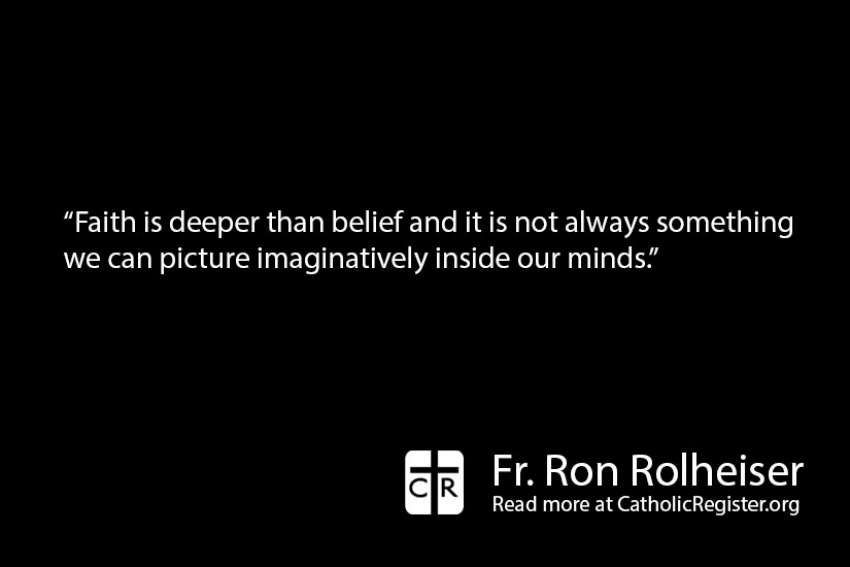I often ask that question because just in my own lifetime there has been an unprecedented decline in the number of people who go to church regularly and, more recently, an equally unprecedented spike in the number of people who claim to have lost their faith completely and are now classified under a religious category called “None.”
This latter group (persons who when asked about their religious affiliation on a census form answer with the word, None) has essentially doubled in the last 20 years and today in Canada and the U.S. makes up over 30 per cent of the population. The numbers are much the same for Western Europe and other secularized parts of the world.
But have these individuals really lost their faith? When they use the word “None” to refer to their religious beliefs they generally explain that with phrases to this effect: I just no longer believe! It doesn’t make sense to me anymore! I’ve lost faith in religion and the Church! I can’t pretend any longer! I’ve lost my faith in those beliefs! I’m not sure whether or not I believe in God!
What’s common among all these phrases is the concept of “believing” or “belief.” But is ceasing to believe in something the same thing as losing one’s faith? Not necessarily. It can be one thing to no longer believe in something, but it can be something quite different to lose one’s faith.
To cease believing in a set of faith propositions doesn’t necessarily equate with losing one’s faith. Indeed, the loss of one’s belief system is often the condition for a purified faith.
How is belief different from faith? In normal, everyday parlance to say that we believe something to be true means that we are able to square that truth with our imagination. Conversely, if we cannot picture how something might make sense, then it is a short step to say that it isn’t true. Our beliefs are predicated on what we can square with our imagination and our thinking.
But many of the objects of our faith are, in essence and by definition, unimaginable, ineffable and beyond conceptualization.
Hence, in the area of faith, to say that I can’t believe this or that is generally more an indication of the limitation of our imagination and our rational powers than it is indicative of the loss of faith. I believe that we are much more agnostic about our beliefs than we are agnostic about God, and this isn’t a loss of faith.
Faith is deeper than belief and it is not always something we can picture imaginatively inside our minds. Take, for instance, a number of articles in the Apostles’ Creed. It is impossible to imagine them as true in terms of picturing them as real. They are real, but our images of them are only icons.
That is true, too, of many articles within our Christian creed and many of our written doctrines of faith.
As expressed, they are merely images and words that point us towards something which we cannot imagine because it is beyond imagination.
For example, the first thing, always, that needs to be said about God is that God is ineffable, beyond all conceptualization, beyond all imaginings, beyond being pictured and beyond being captured in any adequate way by language.
This is also true for our understanding of Christ as the second person in the Trinity. Jesus was God’s son, but how can that be imagined or pictured? It can’t be.
How can God, who is one, be three? This isn’t mathematics; it’s mystery, something that cannot be imaginatively circumscribed. Yet, we believe it and millions and millions of people for 2,000 years have risked their lives and their souls on its truth without being able to picture it imaginatively.
Faith is a knowing of something which, because of its magnitude and infinity, cannot be adequately pictured in terms of an imaginative construct.
Our words about it express our beliefs and those words point to the reality, but they are not the reality.
To reject a specific piece of art does not mean we reject beauty. So when someone says “I can no longer believe this,” he is in effect rejecting a set of propositions, a set of particular icons and a theory of art (a theology) rather than actually rejecting belief in God, and he is rejecting it precisely because he cannot imaginatively picture something which in fact cannot be pictured.
It has been said that atheist is just another name for someone who cannot get metaphor.
Perhaps that’s too simple, but it does suggest that rejecting a set of theological propositions is not the same thing as losing one’s faith.
(Fr. Rolheiser can be reached at ronrolheiser.com)


